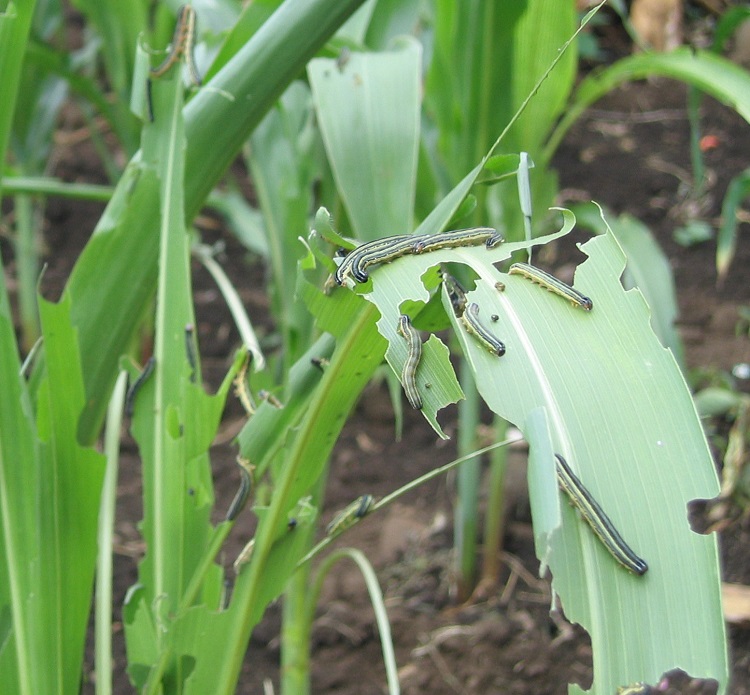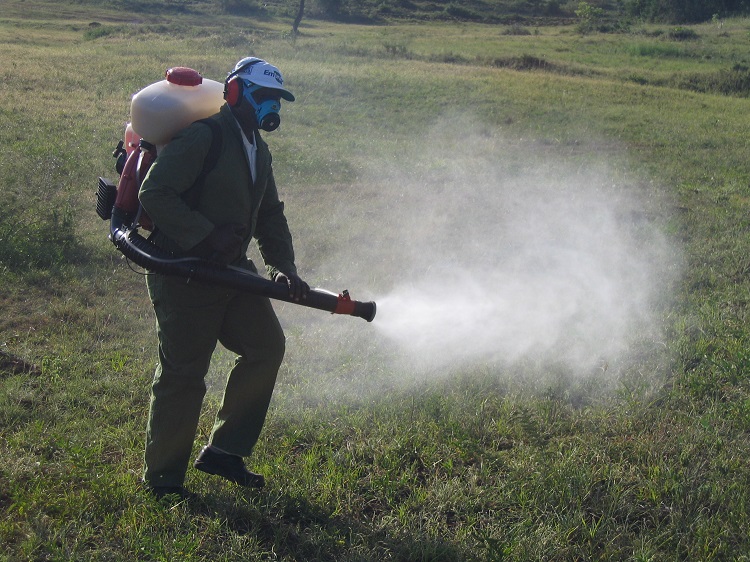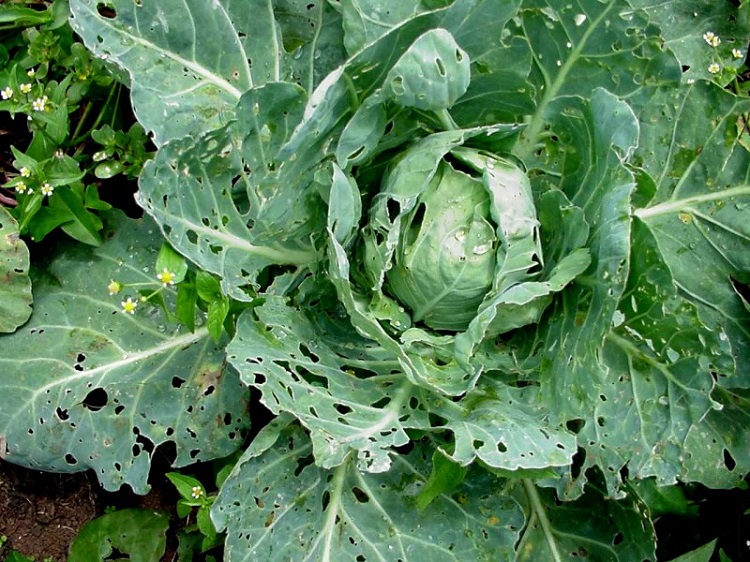
Agricultural pests destroy around one third of all the crops we grow, costing billions and threatening food security. Chemical pesticides are becoming less attractive to farmers as a solution, as they can be damaging to humans and the environment, they’re costly, or they’re simply ineffective, as pests build up resistance to a growing number of chemicals. Official regulations mandating a reduction in chemical use, and consumer or farmer preference also mean that a viable alternative is urgently needed. NRI and partners working to develop more effective natural pesticides recently made a major breakthrough.
 One kind of natural pesticide uses viruses to control pests – in particular a family of viruses called ‘baculoviruses’ which occur naturally in specific insects. Baculovirus pesticides are effective at killing insects but until now they have had a significant snag: they are very sensitive to ultraviolet rays in sunlight and so become inactive after a certain amount of time under the sun. How can scientists help these natural pesticides survive the noonday sun and be more effective? Insect virus specialists, David Grzywacz of NRI and Professor Ken Wilson of Lancaster University, recently teamed up with innovative formulation company ‘Exosect’, UK, to produce a new formulation that is effectively a ‘sunscreen’ for viruses.
One kind of natural pesticide uses viruses to control pests – in particular a family of viruses called ‘baculoviruses’ which occur naturally in specific insects. Baculovirus pesticides are effective at killing insects but until now they have had a significant snag: they are very sensitive to ultraviolet rays in sunlight and so become inactive after a certain amount of time under the sun. How can scientists help these natural pesticides survive the noonday sun and be more effective? Insect virus specialists, David Grzywacz of NRI and Professor Ken Wilson of Lancaster University, recently teamed up with innovative formulation company ‘Exosect’, UK, to produce a new formulation that is effectively a ‘sunscreen’ for viruses.
The technology behind this sunscreen formulation allows baculoviruses to last longer under the sun, meaning that growers will be able to use less product and apply it less frequently, resulting in a realistic cost-effective alternative to chemical pesticides. “This represents a major breakthrough in giving farmers around the world new safer pest control tools,” says NRI’s David Grzywacz. “This will have an impact not only in Africa and Asia, where much of the background research was conducted, but since a number of these originally tropical pests have now spread to the UK and EU in the wake of climate change, British and EU farmers also stand to benefit.” The ultra-destructive diamondback moth (Plutella xylostella) is an example of a pest from the tropics that was recently found in large numbers in brassica fields in the UK and other locations. NRI has a long history of research into such agricultural pests, finding ways to ‘work with nature’ to control them.

This latest breakthrough is the culmination of thirty years of research at NRI, where scientists have been developing insect viruses as safe, effective pest control agents, particularly for controlling crop pests which severely damage the livelihood of poor farmers in the developing world. One such pest is the destructive African armyworm (Spodoptera exempta), affecting crops especially in East and Southern Africa. For over a decade, NRI’s David Grzywacz and Professor Ken Wilson of Lancaster University have been collaborating on work that harnesses the natural diseases of the armyworm as a practical, affordable biopesticide that would specifically and exclusively kill armyworm but not harm any other insects, livestock or humans.
To tackle the problem of the short field life of these biological pesticides, David and Ken partnered with Exosect to develop a formulation system that would significantly improve the effectiveness and persistence of baculoviruses. “This innovative and productive academic/industrial partnership has put Exosect, a UK Formulation technology company, at the forefront of the rapidly expanding global biological pesticides industry,” says David.

In February, Exosect announced ‘excellent results’ from the two-year virus formulation programme and has formally begun licensing discussions with biological pesticide producers. The programme was funded by the UK’s Agritech Catalyst fund, administered by Innovate UK, the UK’s innovation agency, and co-funded by the UK’s Biotechnology and Biological Sciences Research Council.
Links: Exosect | Lancaster University | David Grzywacz’s profile | Agritech Catalyst | Innovate UK | BBSRC


